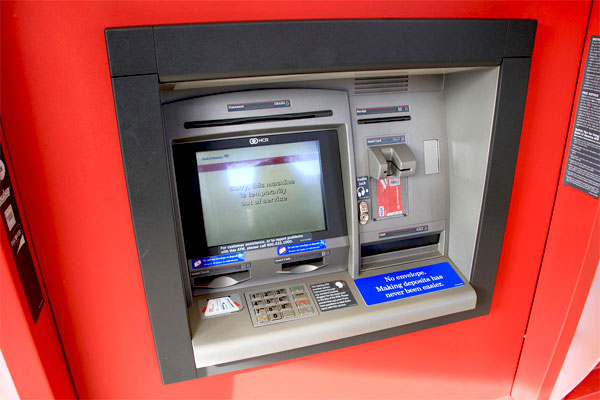The Importance Of Big Data In International Banking
Big Data! Have you heard this term? It is the new catch word as far as mass operations, iterations and manipulations are concerned. Handling the increasingly voluminous cycles of data in the world today requires plenty of processing power, storage space and sorting algorithms. The sheer quantity of data in the hands of companies remains lacking in quantitative value without the chance to derive solutions, trends and reports. This is where big data come in and in a big way.
What is Big Data?
Big Data involve the three Vs of data – velocity, volume and variety. Big Data is the large volumes of data of high velocity and their variety requiring information processing to add value to the information in the future.
The data becomes an asset that requires cost-effective innovations in information processing that enable process automation, enhanced insight and decision making. Big Data further improves the value of the information at hand to guide future actions that will further benefit the company to serve clients better.
Information is growing exponentially thanks to one of the world vision targets; technology. The spread of technology to the world’s remotest regions whether through mobile devices, computers or laptops is a plus for communication. This however, creates a gap in the market for information storage and manipulation.
Idle storage of information in today’s information economy is suicidal as other competitors gain advantages as you stagnate. Big Data allows a company to find out more about the information through various methods like machine learning, multilinear subspace learning and even time series analysis.
Technologies used in Big Data create links between the data, search intelligently for the meaning of the data entries and further amalgamate the data on offer for networks and layers relevant to the system. These include data fusion, data mining, data capture, massive parallel processing and tensor-based computation among other processing techniques.

What are the Uses of Big Data in Banking?
Banking and finance remain one of the largest repositories for data and information. The volume of banking data is often astronomical thanks to the sensitive nature of money. The data often contains more than just names and numbers, but dependents, references, guarantors and even addresses. The information is usually intensive and requiring security as much as storage.
The history and legacy of banking data as one of the most quantitative variety out there makes it the ideal sector to apply Big Data techniques. Their data contain the characteristics of Big Data – velocity, volume and variety – and with the advent of various credit facilities and products, remains the prime candidate for the application of this technology.
Increase Bank Efficiency
The use of resources to achieve results can be managed and even reduced thanks to Big Data. The main purpose is to reduce the time used in accessing, interpreting and manipulating data and Big Data would reduce latency and increase throughput. The banking systems would be efficient and secure with much less time wasted during background checks, lines in banking halls, lengthy application processes and redundant authentication procedures.
Reduce costs
Big Data is best seen as a cost cutting measure in the banking sector. It is a data management system that can reduce the need for storage facilities for data and lower the computational requirements for the bank.
The intricate and learning operations of Big Data technologies can be accessed and managed by average skill workers to avoid hiring specialist operators. The use of machine learning means the system once set the appropriate parameters, can learn for itself to relate and analyze data to make it more useful to the bank. Hadoop data is the main target of big data as it is converted into valuable and relevant information for use by banks whether a terabyte or a petabyte.
Preventing and Identifying Fraud
Banks have been credited as the largest winners from the economic crises, but they have been also victims of one of the largest deception rings; fraud. Tax, mortgage and plastic card fraud has cost the banking sector major.
This is due to the fact one can obtain information on a client, which doubles up as the security measure and use it to feign identity. Identity theft has led to mortgage and plastic card fraud on a large scale, which is shocking considering the high rating banks get for protecting data.
Big Data can prevent fraud by looking for what they call false positives. The absence of intelligent links or relevant dependencies of data have opened the possibility of flimsy matches in name, address or account number being accepted as absolute matches by bank systems and staff.
The system will be intelligent enough to know that a client is not from a certain location or does not have certain relatives as alluded to by fraudsters. They exploit the loose associations of data in banking systems to defraud citizens, but Big Data can be like Big Brother; keeping a watchful eye at all times, even when systems are on downtime or in the event of tracking any fraud that beats Big Data.
Accountability and Background Checks
Big Data can alert banks of high risk clients by finding them in blacklists, watch lists and other sanctions based databases. This is a huge ability that can expose people with multiple names, accounts or aliases to avoid detection by authority bodies that may have sanctions against them.
The due diligence on a client becomes comprehensive ensuring links to families and even external people are identified, extinguished and effectively acted upon. The possibilities of this function amplify the probability of recovering bad debts, blocking accounts with stolen money, freezing accounts of foreign sanctioned people and linking false identities.
Create New Revenue Streams
The access to information of variety and value creates a possibility of offering customized products to clients. This is a necessary evil in today’s world with competition aggressive and clients open to a multitude of options. Banks will be at the center of payments web according to the Internet of Things and can create the best solutions for their clients. This increases satisfaction levels for clients and ensures one can improve revenue streams by identifying needs and gaps in the market according to client data.
This can be a huge competitive edge on competition and be the leverage required to be a market leader. The links between banks and shopping lines to increase chances of credit, rewards and other financial relief schemes are not purely on compassion from the bank rather a Big Data application.
-
Client Satisfaction and Earning Loyalty Points
The ability of Big Data to create a customer DNA and be ahead of their habits is a huge tool to satisfy clients. This is related to creating new revenue streams, but further improves the chances of clients remaining loyal and happy.
Big Data allow a bank to solidify relationships with clients, accounts and portfolios. The use of information to galvanize a relationship can be the difference between happy clients and token customers. Clients often go where the best deals are so you can have a mortgage bank, a bill paying bank and an investment bank, but with Big Data, you can ensure you become all those things to the client. This can be beneficial in ensuring successful partnerships between clients and any other interests they serve.
-
Promote Bank Innovation
Banks are often viewed as bland and impersonal partners on your way to acquiring wealth. The fact banks can use the data to partner with organizations and other entities to assist clients can improve their reputation and standing. The partnerships and collaborations enable better revenue, connectivity to core foundations of clients and related businesses to ensure they become reference points in setting things like interest rates, inflation values and other national development agendas.

Is the Use of Big Data Beneficial to Banks?
Big Data is not only beneficial to banks, but very soon, it will be imperative. The use of the data management system is not only beneficial in attracting more clients, revenue and goodwill, but prevent banks from getting in trouble.
The Big Data applications for banks offer great protection from illegal deals and potential hazards of the financial world. The use of Big Data to detect fraudsters, false identities and manage risk assessment decisions is one huge benefit to banks. This ensures the bank is protected from external threats, internal threats like rogue staff and loopholes in policy and third party negligence.
The pyramid schemes and Ponzi schemes of the world would easily have been averted if Big Data was in use. The dependencies of information would have flagged any cross existing identities, dead clients and false positives. The illegal transactions and money flow irregularities of the schemes would have been highlighted and prevented, if not detected and reversed. The chances to save money and reduce costs for banks would skyrocket and further add to the benefits of Big Data beyond satisfying clients and increasing revenue.
Can Big Data Help Banks Serve Customers Better?
Customers and clients are the bread and butter of banks. This is the main motivation behind them embracing Big Data. The chance to solidify their customer base and create further relations is too big a chance to pass up.
The ultra-competitive nature of banking and finance requires swift acquisition of trust and man management skills to cater to a wide variety of people. The advent of social media is a huge net of Hadoop data that can be utilized by banks. The social media data set contains location, private memories and relational links that swiftly offer chances to endear a bank to a client.
The needs of a client can now be seen in a new light rather than a simple bank statement. The potential for a client to be seen as an asset must not be passed up. The need for credit facilities, the bursary requirements, reward schemes and even commemoration of special life events can be quickly identified and addressed thanks to Big Data.
This can extend to a support system in the event of emergencies like medical needs, bereavements or even retrenchment. Banks are increasingly doing the bidding for their clients in acquisition of assets and this can be escalated with Big Data by even searching for scholarships, employment opportunities or engaging in development projects. This can be an invaluable asset for banks moving forward to gain leverage not only on the cloud, but against goodwill in the community and governance.
Can International Banks Create New Products and Services Using Big Data?
International banks are even better placed than local banks to benefit from Big Data. The access to a wide net of information increases the chances of further reach and deeper connections with clients from multiple nationalities.
This is key especially when accessing foreign currencies, foreign accounts and foreign assets. The increasing global village tendencies in today’s world due to technology, social media and increased awareness makes an integrated society a real possibility. The gap between gender, race and distance has been bridged by technology thanks to translator software, increased use of varied currency and standardization in industries around the world.
Banks have a further advantage in segmentation and targeting. The access to unique information on clients opens the possibilities of customized operations and services to assist clients who have unique problems.
The customized treatment can also be offered to those with special connections to various countries and currencies without ceding the political ground of the bank. Private agreements and compassionate concessions can be accomplished without tarnishing the image of the bank for clients of certain affiliations like Muslim clients in Christian countries in an increasingly religiously divided world. This can also be used in the case of companies or entities implicated in sanctions or under investigation to have a sound risk management strategy.
International banks also have a wider net to cast as far as Big Data is concerned in preventing and managing fraud. The various authorities dealing with fraud on international levels like Interpol for example, can easily use Big Data to track fraudsters as banks would use it to prevent sanctioned individuals from risking the banks’ reputations.
The false identity positives and discrepancies can also be highlighted and mitigated to avoid rampant fraud and subsequent trust issues with clients. Special products like mobile wallets, personalized electronic transactions, tender procedures and consumer reward schemes are all possible thanks to the Big Data applications.

Conclusion
Big Data is a small phrase with a huge impact. The presence of such management systems and accompanying processing techniques converting value, variety, volume and velocity of data into useful information and relevant context is far more beneficial than revenue for banks and satisfaction for clients. It is a chance to prevent crime and protect citizens from losing money all the while getting information to create a better world. Big Data is much more than a technological concept, rather it is a global movement and a paradigm shift for generations to come.
You may also be interested in:
Bitcoin, its safety, future and role in international banking
What is an International Business Company (IBC)? Can it help you?
Is having an international bank account still beneficial
We would love to hear what you think. Leave your thoughts in the comment section.
YOU MAY ALSO LIKE


